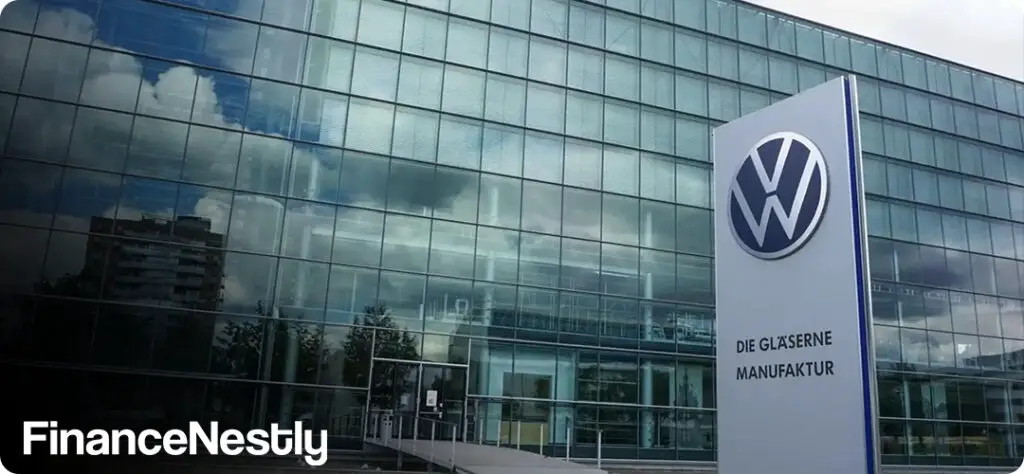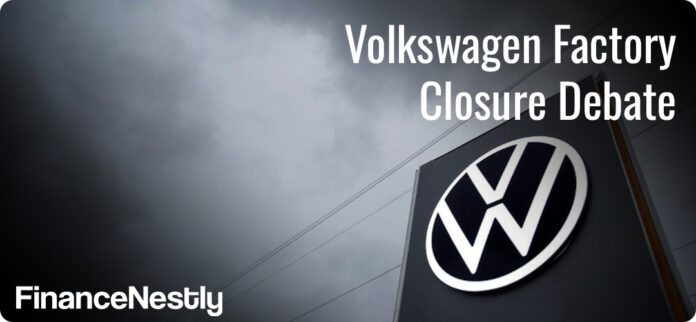FRANKFURT (Reuters) – The potential closure of Volkswagen factories in Germany has become a contentious topic, with German Chancellor Olaf Scholz expressing his disapproval. According to Scholz, Europe’s largest automaker has a responsibility to its workforce that must not be ignored.
Volkswagen is currently embroiled in a heated conflict with its employees over proposed pay reductions and the possibility of shuttering some production plants. The company aims to tackle the challenges posed by Germany’s high production costs and fierce competition from lower-cost Asian carmakers entering the European market.
As both parties prepare for a fourth round of negotiations, Scholz has emphasized the need for prudent decision-making. “Specific decisions will be negotiated between the owners and labour representatives. My opinion is clear: closing locations would not be the right way to go,” Scholz told the Funke Media Group.
Volkswagen Faces Pressure Amid Rising Competition
Germany’s high manufacturing costs and the influx of competitive Asian automakers into the European market have put Volkswagen under considerable pressure. While the company has been a cornerstone of German industry, its leadership now finds itself grappling with financial strains and market dynamics that threaten its dominance.
To counter these challenges, Volkswagen has proposed significant measures, including staff pay cuts and potential factory closures. However, these suggestions have met with strong resistance from employees and government officials alike, sparking widespread debate about the company’s future.
Employee Tensions Highlight the Stakes
Volkswagen’s employees have voiced strong opposition to the proposed measures, particularly the threat of plant closures. Unions argue that the company’s management has failed to adequately address inefficiencies and modernize production lines, placing an undue burden on workers to bear the costs of these shortcomings.
Labour representatives insist that the company explore alternative solutions, such as investments in automation and renewable energy, to reduce costs without sacrificing jobs. As negotiations continue, both sides remain deeply divided, with workers demanding assurances about job security.

Chancellor Scholz’s Stand: A Call for Responsibility
Chancellor Scholz has taken a firm stance on the matter, asserting that shutting down factories is not an acceptable solution. “It would not be right because poor management decisions have contributed to the difficult situation,” Scholz remarked. His comments underscore the view that Volkswagen’s leadership must take greater accountability for the company’s challenges instead of passing the consequences onto its workforce.
Scholz’s position is echoed by Stephan Weil, the state premier of Lower Saxony, which is Volkswagen’s second-largest shareholder. Weil, like Scholz, has urged the company to prioritize its employees and avoid drastic measures like plant closures, which could have far-reaching implications for local economies and families dependent on Volkswagen jobs.
The Role of Government in Shaping Volkswagen’s Future
As a key stakeholder in Volkswagen, the state of Lower Saxony plays an influential role in shaping the automaker’s strategic decisions. Officials from the state have repeatedly emphasized the importance of maintaining employment levels, arguing that preserving jobs aligns with Germany’s broader economic goals.
Moreover, government leaders have urged Volkswagen to innovate and adapt to market changes rather than resort to workforce reductions. They highlight opportunities in electric vehicle production and digital transformation as potential pathways for the company to maintain its competitive edge without sacrificing its workforce.
Exploring Alternative Solutions to Cost Challenges
In light of its financial pressures, Volkswagen has been encouraged to explore more sustainable cost-saving measures. Experts suggest that investing in advanced manufacturing technologies, such as AI-driven production systems, could significantly enhance efficiency.
Another avenue involves partnerships with emerging markets to diversify production while maintaining strong operations in Germany. Such strategies could enable Volkswagen to address cost challenges without resorting to job cuts or plant closures.
A Broader Implication for German Industry
The challenges faced by Volkswagen are not isolated but reflective of broader trends in German manufacturing. High labour costs and global competition have created hurdles for many industrial players in the country. The outcome of Volkswagen’s ongoing negotiations could set a precedent for how German companies navigate these challenges in the future.
Looking Ahead: The Stakes of the Negotiations
As Volkswagen’s leadership and labour representatives enter their fourth round of negotiations, the stakes remain high. The outcome will not only determine the company’s immediate future but also signal how Germany’s flagship industries address the dual pressures of globalization and innovation.
For now, Chancellor Scholz’s message remains clear: Volkswagen must find a way to preserve its workforce while adapting to a rapidly evolving automotive landscape.

